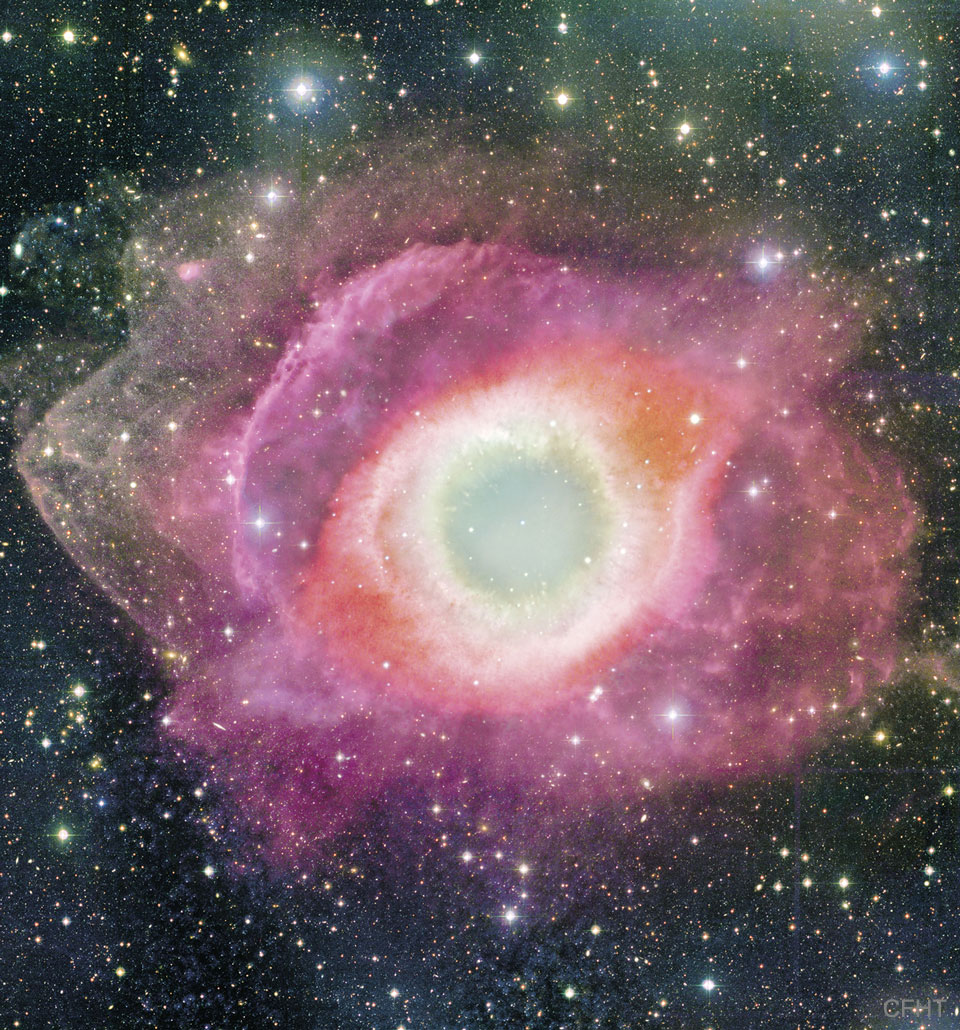2020年11月24日
The Helix Nebula from CFHT
Image Credit & Copyright: CFHT, Coelum, MegaCam, J.-C. Cuillandre (CFHT) & G. A. Anselmi (Coelum)
Explanation: Will our Sun look like this one day? The Helix Nebula is one of brightest and closest examples of a planetary nebula, a gas cloud created at the end of the life of a Sun-like star. The outer gasses of the star expelled into space appear from our vantage point as if we are looking down a helix. The remnant central stellar core, destined to become a white dwarf star, glows in light so energetic it causes the previously expelled gas to fluoresce. The Helix Nebula, given a technical designation of NGC 7293, lies about 700 light-years away towards the constellation of the Water Bearer (Aquarius) and spans about 2.5 light-years. The featured picture was taken with the Canada-France-Hawaii Telescope (CFHT) located atop a dormant volcano in Hawaii, USA. A close-up of the inner edge of the Helix Nebula shows complex gas knots of unknown origin.
Tomorrow’s picture: andromedian horizon
加法夏望远镜拍摄的螺旋星云
影像提供: CFHT, Coelum, MegaCam, J.-C. Cuillandre (CFHT) & G. A. Anselmi (Coelum)
说明: 未来有一天,我们太阳会变成这付模样吗?最明亮与最邻近行星状星云之一的螺旋星云,是一颗类太阳在生命末期所产生的气体云。被这颗恒星抛入太空的外层气壳,从我们所在位置看出去,酷似望进了一个螺旋。残存的中心恒星核,最后会变成一颗白矮星,并发出非常高能量的辉光,激发先前抛出的云气发出荧光。编录号为NGC 7293的螺旋星云,宽约在2.5光年,位在宝瓶 座方向大约700光年远之处。这张主题影像,是由座落在美国·夏威夷一座息火山顶的加法夏望远镜(CFHT)所拍摄。针对螺旋星云内侧边界拍摄的特写影像,显示该处有来源不明的复杂气体纠结。
明日的图片: andromedian horizon



